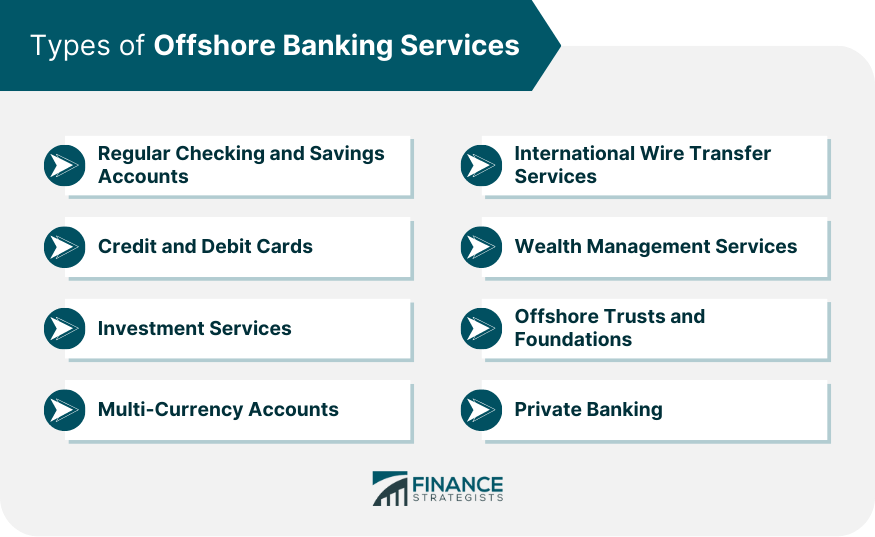How to Select the Best Jurisdiction for Offshore Company Formations
Debunking Offshore Firm Formations: Just How They Run and What to Anticipate
Offshore business formations can seem complicated and enigmatic. Offshore Company Formations. These entities, commonly established for tax benefits and privacy, run under distinct lawful structures. Entrepreneurs might locate themselves navigating via a labyrinth of guidelines and compliance requirements. Recognizing the details is crucial for success. What are the actual advantages? What are the possible risks? A closer assessment exposes the subtleties that might influence decision-making substantially
Comprehending Offshore Firms: Interpretations and Kinds
Offshore business are entities developed in a territory beyond a person's or company's main nation of house, typically for purposes connected to tax optimization, property protection, or governing benefits. These firms can take different forms, consisting of minimal obligation business (LLCs), international service companies (IBCs), and offshore trusts. Each type offers certain functions and attract different demands.
Limited liability firms offer proprietors with security from individual obligation, while global service firms are popular for their adaptability and very little coverage requirements. Offshore depends on, on the other hand, are used primarily for estate preparation and property protection.
The option of jurisdiction significantly affects the business's operations, as some locations offer extra positive legal frameworks and privacy defenses. Offshore Company Formations. Understanding the distinctions between these types is important for people and companies considering offshore frameworks, as each option carries different implications for governance and conformity
The Benefits of Establishing an Offshore Company
Establishing an offshore firm can provide countless benefits, specifically for those seeking to improve their monetary approaches and safeguard their assets. One significant advantage is tax obligation optimization; numerous jurisdictions offer desirable tax prices or exemptions, permitting services to maintain more profits. Additionally, offshore firms can provide a layer of privacy, securing the identities of proprietors and investors from public examination.
One more benefit is possession security. By placing assets in an overseas entity, people can guard their wide range from prospective legal claims or political instability in their home nations. This framework additionally promotes global organization procedures, making it possible for less complicated accessibility to worldwide markets and diverse clientele.
Furthermore, the facility of an overseas firm can enhance reputation and eminence, interesting clients who value worldwide service techniques. On the whole, these benefits make overseas business formations an attractive option for people and services going for monetary development and protection.
Trick Considerations Prior To Forming an Offshore Entity
Before forming an overseas entity, several critical factors have to be evaluated. Legal conformity requirements, tax effects and benefits, in addition to jurisdiction choice, play a considerable role in the decision-making process. Recognizing these factors to consider can aid people and companies browse the complexities of overseas firm formations successfully.

Lawful Conformity Demands
When thinking about the development of an offshore entity, comprehending lawful compliance needs is vital to ensure adherence to both worldwide and local laws. Potential organization proprietors must familiarize themselves with policies governing company registration, reporting obligations, and operational criteria in the chosen territory. This includes confirming the lawful demands for supervisors and investors, in addition to making certain conformity with anti-money laundering (AML) and know-your-customer (KYC) laws. In addition, businesses should continue to be familiar with any licensing demands details to their industry. Engaging neighborhood legal and monetary specialists can offer beneficial understandings, guaranteeing that all needed documents is prepared and sent correctly. Inevitably, extensive knowledge of legal conformity assists minimize risks and promotes a sustainable overseas procedure.
Tax Ramifications and Advantages
Countless company owner take into consideration the tax implications and advantages of developing an offshore entity as an essential factor in their decision-making procedure. Offshore firms can use considerable tax obligation benefits, such as decreased company tax prices, exception from specific neighborhood tax obligations, and the capacity to delay taxes on foreign income. These benefits can result in improved success and capital, making offshore frameworks appealing for global organization operations. Additionally, the possibility for tax obligation treaties might additionally lessen tax obligation responsibilities. Nonetheless, it is necessary for company owner to understand the intricacies included, including compliance with both local and international tax obligation laws. Engaging with tax specialists is a good idea to navigate these details efficiently and ensure ideal tax obligation preparation methods.
Territory Choice Variables
What variables should one think about when selecting a territory for overseas business development? Secret considerations include tax effectiveness, governing atmosphere, and political stability. Territories with desirable tax regimes can substantially influence earnings. The governing landscape needs to use versatility and ease of compliance, enabling reliable service procedures. Political stability is crucial, as it ensures the security of possessions and continuity of operations. Additionally, the track record of the jurisdiction can affect client trust and business connections. Access to financial services and the schedule of specialist assistance solutions are he said additionally essential. Ultimately, recognizing neighborhood regulations concerning reporting, personal privacy, and ownership requirements is vital to ascertain that the overseas entity aligns with business owner's objectives and legal obligations.
The Process of Setting Up an Offshore Business
Establishing an overseas firm entails a series of critical actions that need careful preparation and conformity with international guidelines. Initially, a specific should choose an appropriate jurisdiction that lines up with their business purposes and provides beneficial tax obligation advantages. Following territory option, the next action is to choose an one-of-a-kind firm name and prepare the essential paperwork, consisting of short articles of unification and shareholder agreements.
As soon as the documentation prepares, it must be submitted to the pertinent authorities along with the called for fees. After approval, the company will receive a certificate of incorporation, formally developing its lawful presence. The individual should after that open up a corporate checking account to assist in economic transactions.
Lastly, preserving an overseas firm entails adhering to continuous conformity needs, such as yearly reporting and tax responsibilities, which differ by jurisdiction. Comprehending each action is crucial for a successful offshore firm formation.

Regulative and lawful Framework for Offshore Companies
While establishing an offshore firm can supply substantial benefits, it is necessary to steer with the intricate legal and regulatory structure that regulates such entities. Each jurisdiction has its own collection of regulations that determine everything from company development to tax and compliance needs. These guidelines are designed to avoid prohibited activities, such as money laundering and tax obligation evasion, and commonly require comprehensive documentation and openness.
Key elements of this structure include the necessity of assigning regional supervisors, preserving an authorized workplace, and adhering to annual coverage responsibilities. Additionally, several jurisdictions enforce certain licensing requirements for sure company tasks. Comprehending these lawful terms is critical for making certain conformity and mitigating threats connected with penalties or legal conflicts. Involving with lawful experts that specialize in overseas firms can help in steering through this elaborate landscape, inevitably assisting in a compliant and effective offshore organization operation.
Typical Misconceptions Regarding Offshore Companies
Many individuals hold misunderstandings about offshore firms, frequently equating them with tax obligation evasion and prohibited tasks. visit this web-site It is important to identify that these entities can run legitimately within a framework made for legit service practices. Making clear the lawful condition of overseas firms can aid eliminate these myths and promote a more accurate understanding of their objective.
Tax Obligation Evasion Misconceptions
Regardless of the expanding popularity of overseas business, misunderstandings about their usage for tax evasion linger. Lots of individuals incorrectly believe that developing an overseas entity is only a way to prevent taxes. Nonetheless, overseas companies are often utilized for legitimate objectives, such as possession protection, global service expansion, and financial investment diversification. The perception that all offshore activities relate to illicit tax evasion ignores the intricacies of international tax obligation laws and compliance requirements. In addition, the huge majority of offshore territories have executed measures to deal with tax evasion, promoting openness and information exchange. This mischaracterization can hinder legitimate companies and capitalists from discovering the possible advantages of overseas firm formations while bolstering an adverse stigma bordering these entities.
Lawful Standing Clarified
The legal status of offshore firms is often misunderstood, causing a selection of misunderstandings. Numerous think these entities run in a lawful gray area, presuming they are underhanded or inherently illegal. In truth, offshore business are legit businesses developed under the legislations of certain territories, made for various reasons, including possession security and market growth. One more common mistaken belief is that offshore companies evade tax obligations completely; nevertheless, they undergo the laws and tax obligation commitments of their home countries. Additionally, some people think that offshore companies can be conveniently exploited for cash laundering or prohibited activities. While abuse can happen, a lot of jurisdictions impose strict compliance and openness laws to reduce such risks, ensuring that offshore companies run within lawful structures.

Managing and Running Your Offshore Business Effectively
Efficiently managing and operating an overseas firm calls for a critical strategy that balances compliance with local laws and the search of service objectives. Effective overseas administration entails recognizing the territory's tax laws, reporting demands, and operational guidelines. Using regional specialists, such as accounting professionals and lawful consultants, can give vital insights into traversing these complexities.
Furthermore, developing see here now clear communication channels and operational protocols is essential for keeping efficiency. Making use of technology for project monitoring and collaboration can boost performance, while normal efficiency evaluates guarantee alignment with strategic purposes.
Preserving robust financial records is crucial, as transparency promotes count on with stakeholders and complies with international criteria. Lastly, being adaptable to adjustments in regulations or market problems enables overseas business to pivot effectively, assuring long-lasting sustainability and development. By adhering to these concepts, company proprietors can make the most of the advantages of their offshore endeavors while mitigating dangers.
Often Asked Inquiries
Exactly how Much Does It Price to Maintain an Offshore Business Annually?
The expense to maintain an overseas firm annually varies considerably, typically varying from $1,000 to $5,000, depending on territory, services required, and conformity commitments. It is necessary to think about added charges for specific requirements.
Can I Open a Checking Account for My Offshore Firm Remotely?
Opening a financial institution account for an overseas firm remotely is normally possible. Needs might vary by territory, frequently requiring paperwork and confirmation procedures, which can make complex the remote application experience for people.
Exist Particular Nations Understood for Easier Offshore Firm Formations?
Certain countries, such as Belize, Seychelles, and the British Virgin Islands, are renowned for their structured procedures and positive policies pertaining to offshore firm formations, attracting entrepreneurs seeking efficiency and discretion in service operations.
What Types of Organizations Are Finest Suited for Offshore Companies?
Particular services, such as consultancy, investment, and ecommerce firms, commonly profit from offshore firms because of tax obligation advantages, personal privacy, and regulative adaptability - Offshore Company Formations. These entities typically grow in jurisdictions that advertise favorable service environments
Exactly How Can I Ensure Conformity With Neighborhood Laws When Running Offshore?
To assure compliance with regional laws when operating offshore, it is important to engage lawful specialists, carry out detailed research study on jurisdiction policies, and keep clear financial documents, thereby decreasing dangers related to non-compliance.
